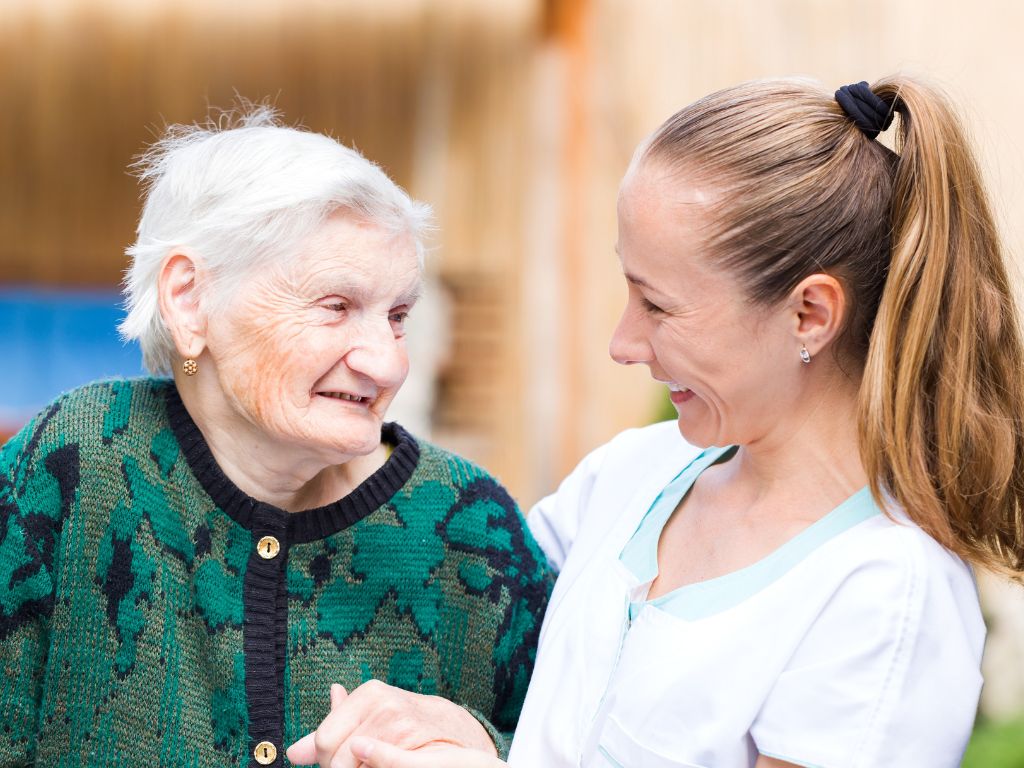In addition to temporary care for an acute illness or post-surgical recovery, we can also provide full-time, 24-hour care that allows seniors to age-in-place, without the need for traumatic transitions into rehabilitation centers, nursing homes, or memory care facilities in Massachusetts.
There is a direct correlation between qualified, in-home 24-hour care and decreased hospital admissions. Those savings, combined with the lower cost associated with home care when compared with other senior living alternatives, make 24-hour home care a safe and appealing alternative to many seniors and their families.
Who Needs 24 Hour Home Care?
There are a variety of reasons why seniors might need 24-hour home care. Some of the most common include:
- A serious illness that requires nighttime supervision, medication reminders, and support with personal care, meals, errands, and housekeeping
- Post-surgical recovery instructions that require someone to be present around the clock to support transfers, mobility, personal care, hygiene, etc.
- Mid- to later-stage dementia or Alzheimer’s
- Respite care that enables the normal family caregivers the chance to go away for a weekend or a longer-term vacation
- Supervised recovery from a stroke, heart attack, or another major medical episode
The Large Majority Of Seniors Prefer To Age-in-Place
Studies from the AARP are clear that a large majority of seniors (90%) prefer to age-in-place, rather than move into assisted living communities. And 82% of seniors prefer to remain in their homes even if that requires bringing caregivers in to assist with daily tasks.
24-hour caregivers provide all of the services available via standard, daytime caregivers, including nighttime shifts by caregivers who remain awake and alert overnight to attend to their client’s needs and to prevent them from wandering, falling, or injuring themselves.
Services include:
- Companionship
- Errands and grocery shopping
- Meal preparation and company while eating
- Medication reminders
- Transportation services
- Taking clients out for meals and social outings
- Alzheimer’s and dementia care
- Light housekeeping, laundry, and linen changes
Difference Between Live-In & 24 Hour Home Care
24-hour care is not the same as live-in care.
Live-In Care
With live-in care, clients must provide a bedroom or private space for the designated caregiver(s). Typically, there are only one or two caregivers who share the shifts- one of whom might be a family caregiver. Schedules vary according to the caregivers’ availability.
Perhaps one works during the week and one on the weekend. Or one works three days and the other four, and then they switch. Either way, each caregiver is legally required to take an 8-hour break between shifts, is allowed to sleep at night, and must comply with local labor laws, which can mean periods when the client is unattended.
Live-in care is best for clients who:
- Sleep most of the night without being a fall risk
- Are not prone to wandering
24-Hour Care
24-hour care means there is a caregiver present and awake, 24-hours a day. This typically utilizes three or four different caregivers within every 24 hours. Nobody sleeps over or requires their own room/space.
24-hour home care is best for clients who:
- Are restless sleepers or a fall risk
- Are prone to sundowner’s syndrome or wandering (usually related to a dementia diagnosis)
Signs Your Loved One May Require 24 Hour Home Care
Here are some of the signs that your loved one’s part-time care may need to be augmented with nighttime shifts or full-time, 24-hour care:
- S/he suffers from sundowner’s syndrome that puts him/her at risk during the nighttime hours
- S/he’s been lost or not known where s/he is within familiar neighborhood boundaries, or while on routine outings or errands
- Nighttime incontinence that is difficult to manage on his/her own (indicated by soiled bed linens and/or clothing)
- Increased confusion due to dementia
- Decreased mobility that makes him/her more prone to slip and fall accidents
- Requires assistance with eating or drinking (a choking hazard, especially at night while sipping water or taking medications)
- S/he needs nighttime medication reminders
- A physician’s recommendation, post-operative instructions, etc.
- Increased bruising or injuries that indicate falls or diminishing balance
Any of these signs indicate it may not be safe for a senior loved one to spend nights on their own. Reduced lighting, nighttime confusion, and the risk for injuries that would go unnoticed until the next day (or longer) make it safer for seniors to have someone present.
24-hour home care is available on a temporary or permanent basis. An in-home assessment and a review of the client’s and family’s concerns are the first steps in establishing whether 24-hour home care is the right choice in Massachusetts.
Online Reviews From Our Clients
Our Service Area
North River Home Care serves families and their loved ones in the South Shore and MetroWest area. Below is a list of specific areas we serve.
Contact Us About Our Home Care Services
Contact us anytime to learn more about our home care services in South Boston and the surrounding area. For additional information, or to arrange a free assessment at home or in a facility, please call or fill out our online contact form below and a member of our team will be happy to assist you.



